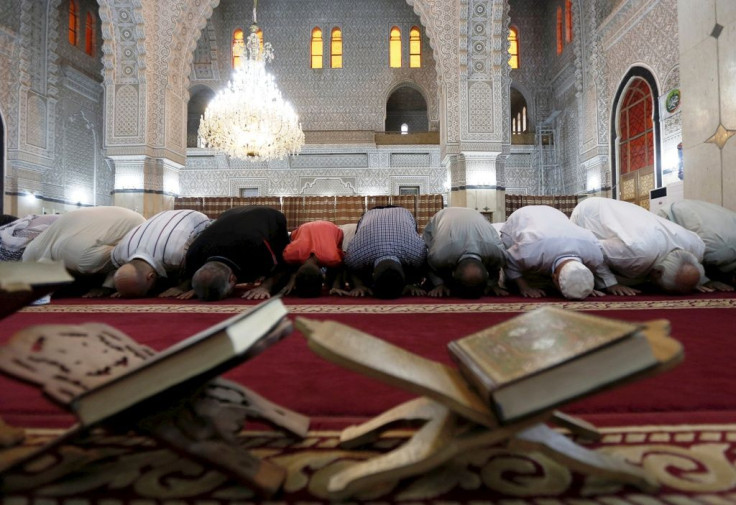When Does Ramadan 2017 End? Islamic Fasting Month Culminates On Eid Al-Fitr

Ramadan, the month of fasting for Muslims, will end June 24 evening. The end of the ninth month of the Islamic calendar culminates on “Eid al-Fitr,” which is marked with a big feast, exchanging of gifts and celebrations.
Ramadan is considered very sacred by Muslims as they believe it was during this month Allah revealed the first verses of the Koran to Prophet Muhammad. Observing Ramadan is one of the Five Pillars of Islam — faith, prayer, charity, fasting and pilgrimage to Mecca. The month typically lasts about 29 to 30 days based on the moon.
Muslims follow the lunar calendar for religious purposes. The calendar is based on the phases of the moon — whose 12 months are approximately 354 days, according to Vox. Due to this, the Islamic lunar calendar moves backward exactly 11 days every year with regards to the widely used Gregorian calendar.
In Islam, fasting is viewed as a cleansing of soul and having control over oneself. Muslims are required to refrain from eating, drinking, smoking, as well as sex from sunrise to sunset. During Ramadan, Muslims wake up before sunrise for morning prayers and eat before fasting begins for the day. It is advisable to eat high-protein food to keep going throughout the day. Generally, after eating, many Muslims go back to sleep. The meal before dawn is called sufur and after sunset is iftar.
However, children and people who are ill, elderly, pregnant, breastfeeding, diabetics or women on their period, are pardoned from fasting.
Muslims are expected to continue with their normal routine during Ramadan and not use fasting as an excuse to skip work. In several Muslim dominated countries however, businesses and schools may reduce their hours during the day or remain shut entirely.
After the evening prayer, Muslims break their fast with the “Iftar” meal, mostly with their families. Several people go to the mosque before breaking their fast.
While the observance of Ramadan remains the same for Sunni and Shia Muslims, there is a slight difference in the timing of breaking the fast. Sunnis generally break their fast at sunset, when the sun itself is no longer visible in the horizon.
Shias however, wait until even the twighlight from the setting sun has disappeared completely, leaving a dark sky, according to Vox.
“Shia also celebrate an additional holiday within the month of Ramadan that Sunnis do not. For three days — the 19th, 20th, and 21st days of Ramadan — Shia commemorate the martyrdom of Ali ibn Abi Talib, the cousin and son-in-law of the Prophet Muhammad who was both the revered fourth caliph of Sunni Islam and the first "legitimate" imam (leader) of Shia Islam,” the Vox report said.
“Ali was assassinated in the fierce civil wars that erupted following the death of Muhammad over who should lead the Muslim community in his stead. On the 19th day of the month of Ramadan, while Ali was worshipping at a mosque in Kufa, Iraq, an assassin from a group of rebels who opposed his leadership fatally struck him with a poisoned sword. Ali died two days later,” it added.
© Copyright IBTimes 2024. All rights reserved.






















